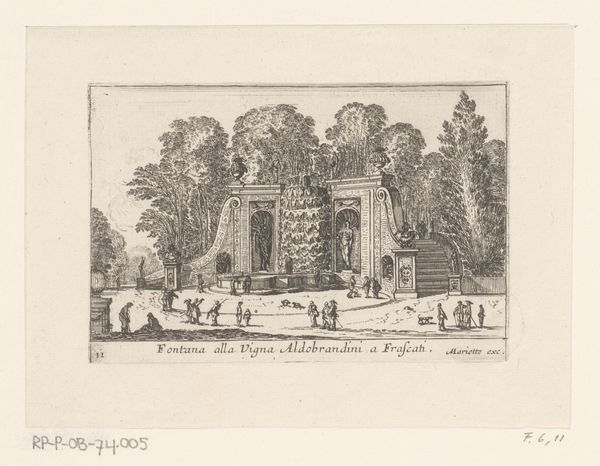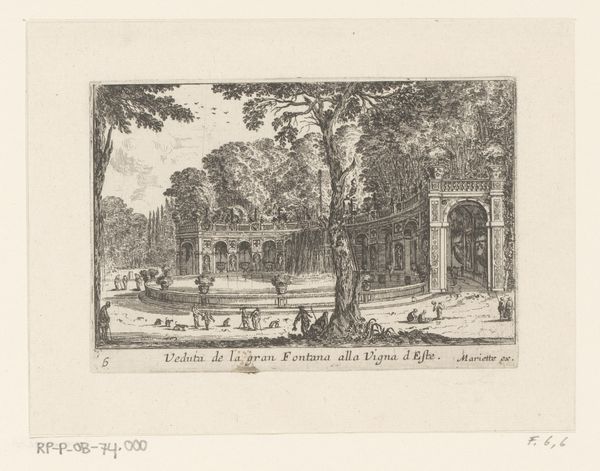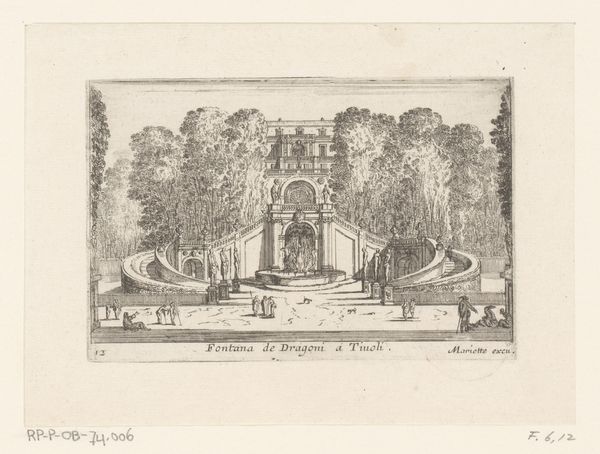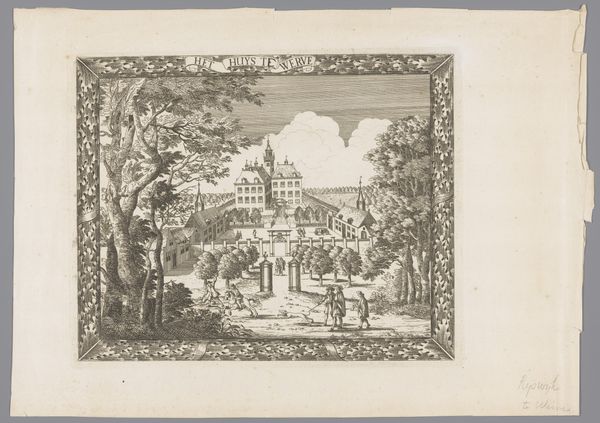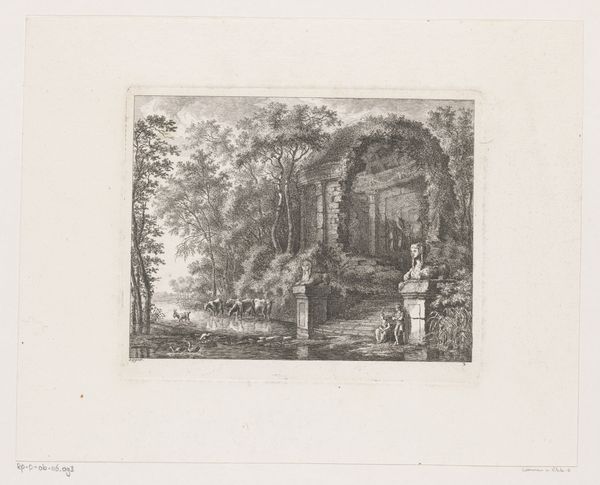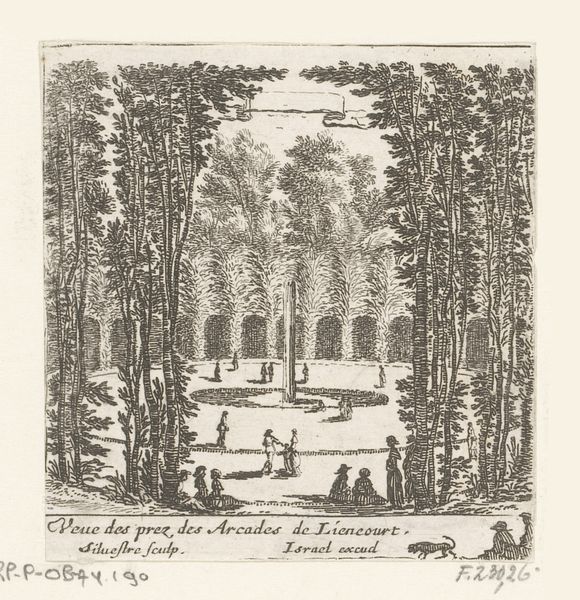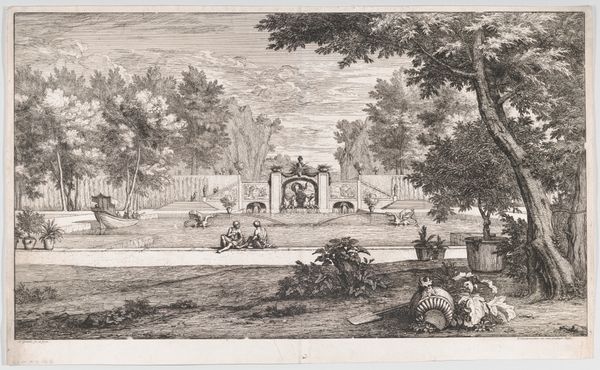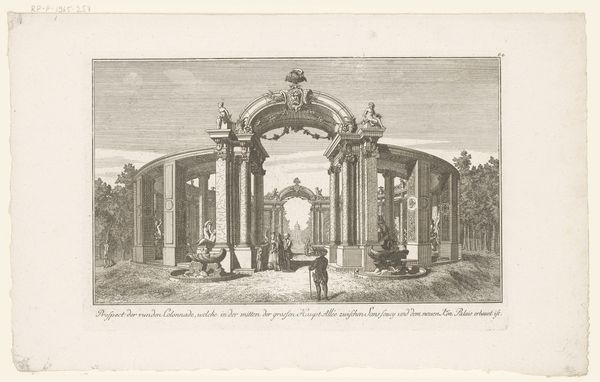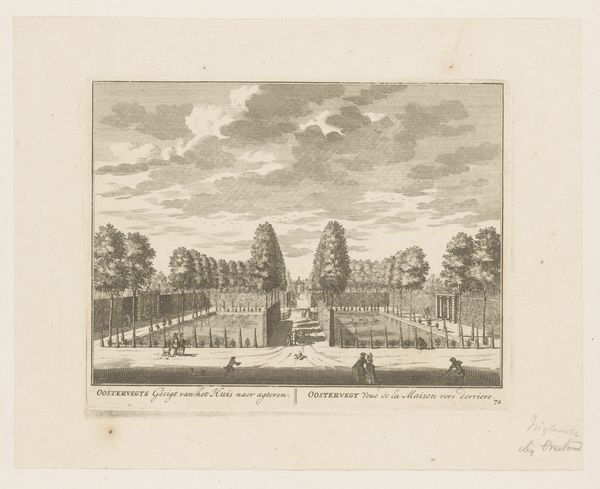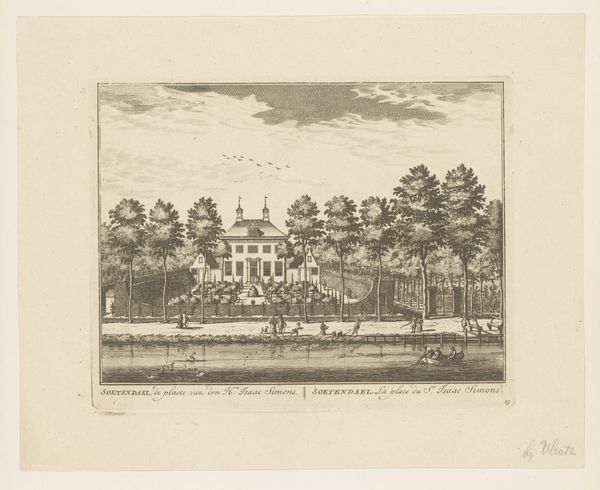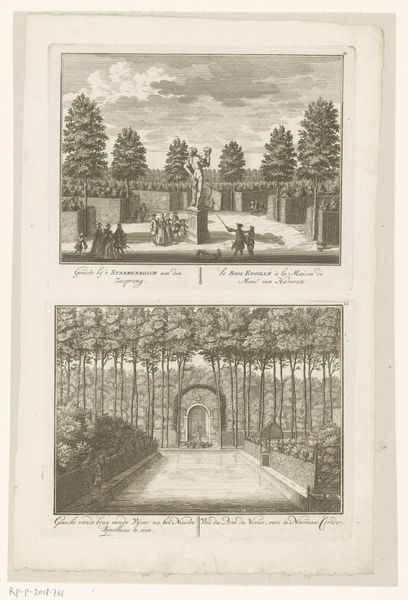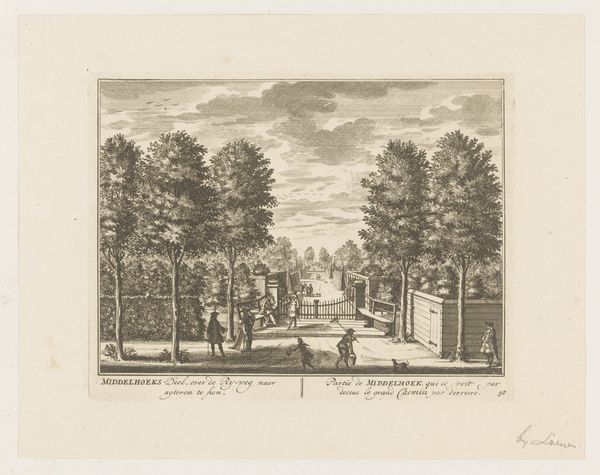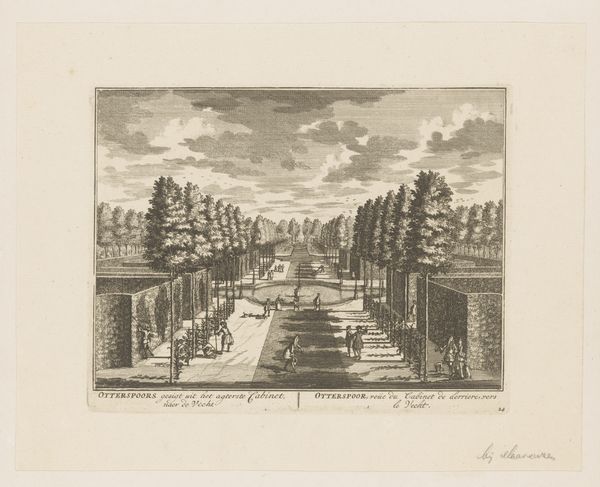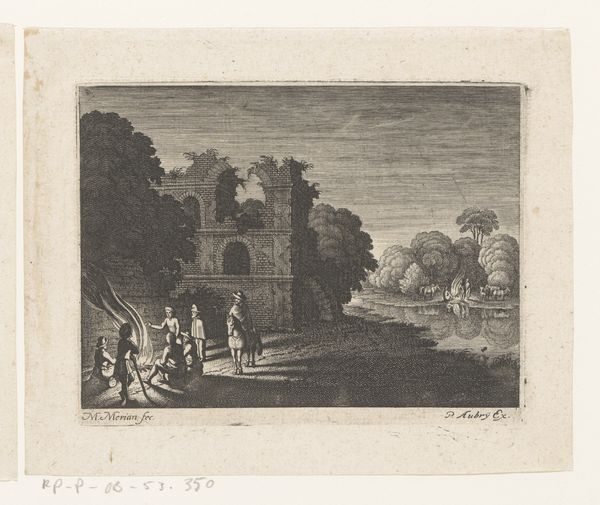
print, engraving
#
baroque
# print
#
old engraving style
#
landscape
#
perspective
#
cityscape
#
engraving
Dimensions: height 83 mm, width 122 mm
Copyright: Rijks Museum: Open Domain
Editor: This engraving, "Gezicht op de tuinen van Villa d'Este" by Israel Silvestre, dating back to 1646, is incredibly detailed. It's a print of a garden view. I'm immediately struck by the perspective—how everything seems to converge, leading the eye deeper into the landscape. How do you interpret the scene represented? Curator: Indeed, the perspective is masterful, isn't it? But consider what that perspective achieves. It’s not simply a visual trick. Notice the groupings of figures carefully placed, seemingly observing the central fountain, an implied theatre. What dramas, both personal and political, might unfold here? Editor: That's a compelling point! I was focused on the aesthetics, the almost stage-like layout, the way nature is shaped, but thinking about the social aspect shifts my understanding. So, the arranged nature of the landscape reflects something about how society was arranged? Curator: Precisely! Fountains and gardens during the Baroque era were not merely pleasant spaces. They were signifiers of power, wealth, and control over nature. Water itself, think of its symbolic significance through time – life, purification, renewal – here meticulously directed, announces the owner's mastery. What cultural memories do these types of spaces evoke? Editor: It’s interesting how symbols of water are reinterpreted. Nowadays, we think of the environment in different ways; sometimes controlling water is seen negatively because it damages the ecosystem. The dialogue of human control versus natural harmony. I learned that symbols are rooted in their own time, but they are always open to continuous evolution and different interpretations. Curator: And it is in these reflections that we engage in an important dialogue that spans centuries and re-orients our perceptions.
Comments
No comments
Be the first to comment and join the conversation on the ultimate creative platform.
